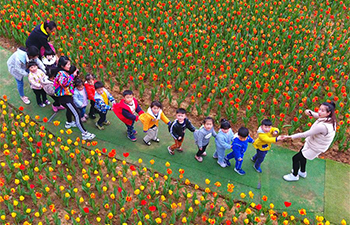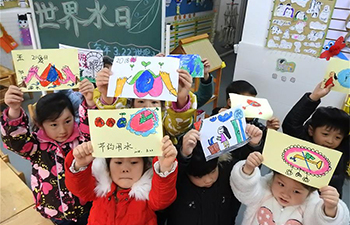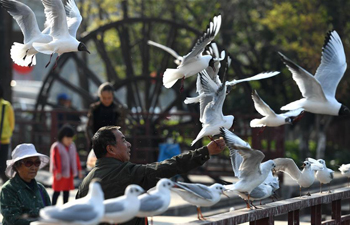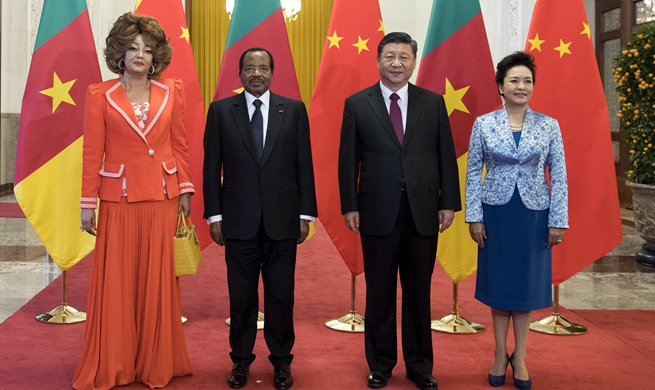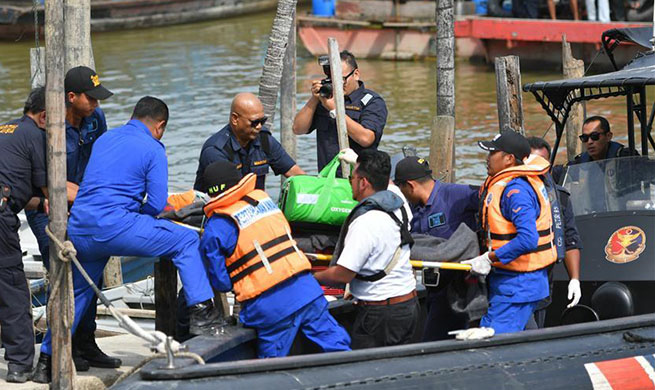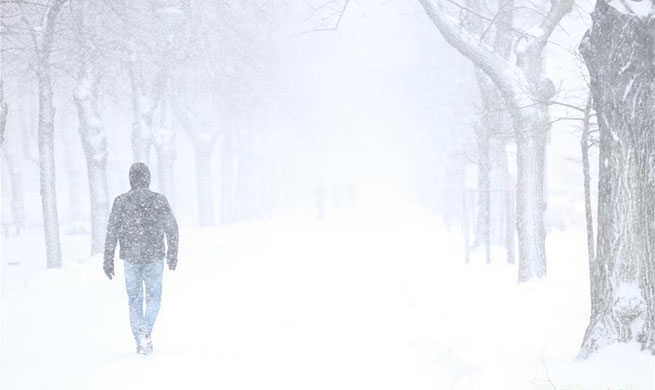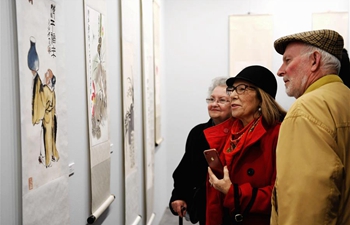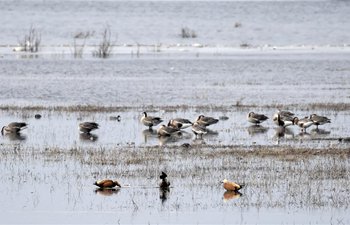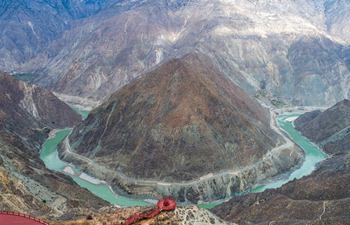By Xinhua writers Quan Xiaoshu, Qu Ting
BEIJING, March 23 (Xinhua) -- After half a century of studying prehistoric fish fossils, Chinese paleontologist Chang Meemann has a favorite: Youngolepis.
Living about 400 million years ago, Youngolepis was first thought to be very close to a type of rhipidistians, a possible link in the long evolution from fish to tetrapods, or in other words land vertebrates, including humans.
But after careful study of its small cranium in the 1980s, Chang concluded that Youngolepis had no internal nostrils, a key adaption to allow land vertebrates to breathe out of water.
The discovery overturned mainstream views at the time and led to a decade-long debate and re-consideration on phylogeny of lobe-finned fishes, whose descendants left the water and conquered the land.
Chang is still lauded for her academic contribution and her courage to challenge the dominant view more than 30 years later. The 82-year-old was named the 2018 L'Oreal-UNESCO For Women in Science Awards laureate "for her pioneering work on fossil records leading to insights on how aquatic vertebrates adapted to live on land".
The awards, jointly founded by the United Nations Educational, Scientific and Cultural Organization (UNESCO) and the L'Oreal Foundation, began 20 years ago and are given each year to five outstanding women scientists for their accomplishments in scientific research and commitment.
"Of course, I am happy. It's a great encouragement. But I don't think I am well qualified," Chang told Xinhua before she went to Paris for Thursday's ceremony.
SET GOALS
Born in Nanjing, east China's Jiangsu Province, in 1936, Chang wanted to become a doctor early on, due to the influence of her father, who taught human physiology at a medical college. "There were many diligent and well-educated doctors at my father's workplace," Chang recalls.
Her father often took her and her little brother to net shrimps, catch worms and observe ants. "We could express opinions freely to our father or even argue with him. He was always amiable."
But at 17, Chang changed her mind and chose to study geology at college.
"Everyone had a zeal to serve the country," she recalls.
About 200 other women students enrolled the same year and most went on remote geological surveys after graduation. Chang was selected to do scientific research and went to Moscow to study paleontology.
At the suggestion of Wu Hsienwen, a leading Chinese ichthyologist who was then visiting the Soviet Union, she focused on fish fossils. She often wandered along the rivers in Moscow to collect fossils from Holecene sediments and compare them with modern fish.
In 1960, she returned to China and entered the Institute of Vertebrate Paleontology and Paleoanthropology (IVPP). She spent three months each year accompanying geological prospecting teams to collect fossils in the field, a practice she maintained till the age of 80.
Walking 20 kilometers a day was routine, and every member of the team would eat like a wolf. Chang set a personal record of eating 500 grams of rice in a meal.
"Once I set a goal, I never give up," she says.




